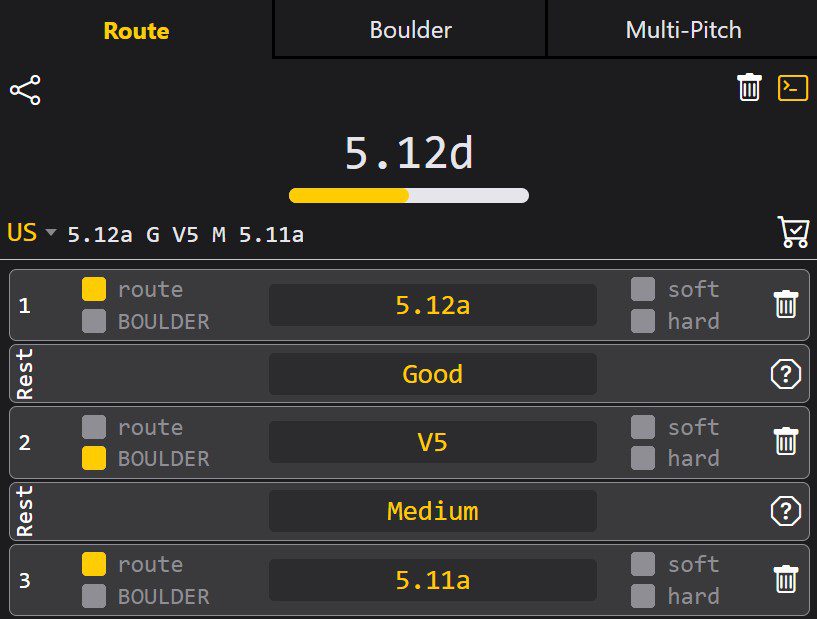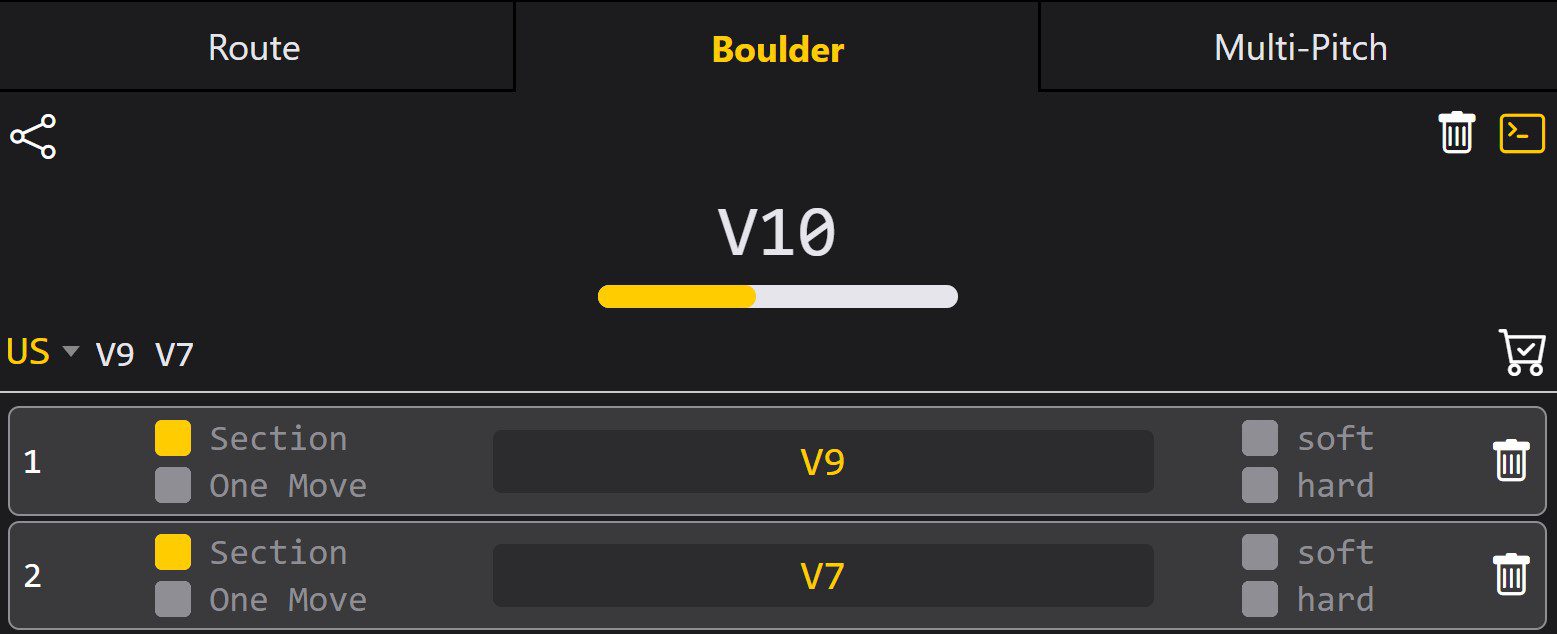Have You Tried This Climbing Grade Calculator?
Darth Grader is an online tool that helps climbers make objective climbing grade assessments for routes and boulders

What makes a 5.12c a 5.12c? What makes a V5 a V5, or a V10 a V10? Darth Grader is a relatively new, free online tool that aims to clear up confusion around climbing grades and help climbers propose the most objective grades possible. It calculates the grade of a climb based on the climb’s constituent parts. For example, using the tool, you can break down a sport climb into its long sections (using a route grade), short cruxes (using a boulder grade), and rests, and from these individual components, Darth Grader will calculate an overall grade.
“There are two major cognitive biases that tend to make us overestimate the difficulty of a route,” says the Darth Grader website. “The first is when a route approaches our maximum level, our perception of the difficulty becomes exponential, the slightest additional difficulty seems insurmountable. The second is due to the emotional charge we attach to our investment for redpointing. The number of sessions required to redpoint is a good indicator of the grade, but only if the sessions were spent in good conditions and with the right betas. Darth Grader is here to help you overcome these cognitive biases.”
Using Darth Grader is very simple. First choose the type of climb you want to grade: route, boulder, or multi-pitch. You can use French grading or the Yosemite Decimal System and V-grades. In this article, we’ll describe how the calculator works for routes.
In the Darth Grader calculator, choose “Route” and the grading system you want to use (French or U.S.). Next, in your mind, start breaking down the route into different sections, starting from the ground to the chains. If the section is long, give it a route grade (e.g. 5.12a). If the section is short, give it a boulder grade (e.g. V4). In the Darth Grader calculator, add in the first section of the route (for example: a 5.12a or V4). Then enter what follows: a good rest, a medium rest, a bad rest, or no rest at all. Next, add in the second section of climbing. Then enter the type of rest that follows. Then add in the next section of route, and so on and so on.

From all of this information – route grade sections, boulder grade sections, and rests – Darth Grader spits out an overall grade for the climb. For example, according to Darth Grader, a 5.12a followed by a good rest followed by a V5 boulder problem followed by a medium rest followed by a 5.11a equals a 5.12d (as seen above). In the boulder calculator, a V9 plus a V7 equals a mid-grade V10 (as seen below).
The sensitivity and complexity of the Darth Grader algorithm is impressive. You can add slash grades for both route sections and boulder sections. You can also mark the grade “soft” or “hard”. The final grade outputs are marked on a scale from soft to hard (for example, 5.11b soft, 5.11b, 5.11b hard).
Rightfully so, the tool takes into account the position of a hard sequence in a climb. For example, a 5.12b followed by V6 (with no rest in between) equals a 5.13b, where a V6 followed by 5.12b (with no rest between) equals a 5.13a. Similarly, the presence and quality of rests can play a huge role in the final grade of a climb. For more information on how Darth Grader’s complex algorithm works, check out this document that goes into detail on how they make their calculations.
So, the next time you’re a little unsure about how to grade your latest FA or what to propose for your personal grade for a repeat, be sure to play around with the Darth Grader calculator. It’s a great tool for helping you stay objective in your assessment. Darth Grader also has a calculator for multi-pitches that calculates an overall grade for a multi-pitch climb based on the grades of the individual pitches. We’ll save discussion of this novel way of calculating multi-pitch grades for another article.

You can visit Darth Grader here.


